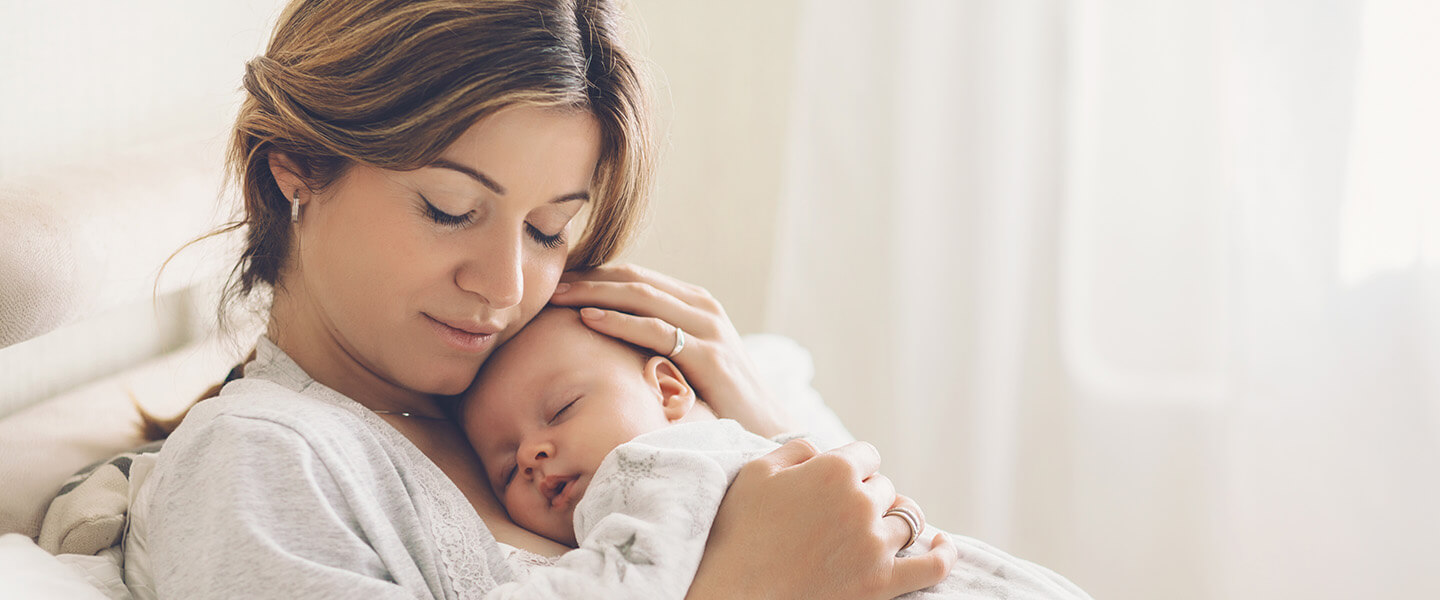When Mothers Got CBT for Postpartum Depression, Emotion Regulation in Their Infants Improved
When Mothers Got CBT for Postpartum Depression, Emotion Regulation in Their Infants Improved

Thanks to pioneering research spanning three generations led by BBRF Scientific Council member, three-time grantee and prizewinner Myrna Weissman, Ph.D., it is now widely accepted that children of depressed mothers are at higher risk of developing psychiatric disorders—and, that when depressed mothers are successfully treated, the risk in their children declines significantly.
But what about at the very dawn of the child’s life, when the mother or birthing parent suffers from postpartum depression? What is the impact of treating the mother’s depression upon emerging markers of mental health in the infant?
A research team led by 2015 BBRF Young Investigator Ryan J. Van Lieshout, M.D., Ph.D., of McMaster University, Canada, has reported results of a randomized controlled trial of mothers/birthing parents and their infants designed to test the impact of cognitive behavioral therapy (CBT) on reducing postpartum depression as well as the infants’ emerging capacity to regulate their emotions.
Postpartum depression affects up to 1 in 5 mothers/birthing parents, and, according to Dr. Van Lieshout and colleagues, two-thirds of its economic costs are due to its impact upon offspring. In their trial, the team focused on infants’ “emotion regulation” (ER) capacity. This refers to brain-based processes involved in modifying emotions in service of future goals. “Early problems with emotion regulation are very important,” Dr. Van Lieshout notes, “because they are involved in the development of almost all kinds of mental health problems later in life.”
ER is largely shaped by maternal interactions at the beginning of life; infants depend on continuous exchanges with caregivers to regulate their emotional distress. With caregivers, “infants may use vocal cues, facial expressions, and physical gestures to express their socio-emotional and homeostatic needs [keeping bodily systems in working balance],” the team notes in their paper appearing in the Journal of Affective Disorders. “In turn, caregivers help to regulate their infants by responding to their attempts at interaction in a timely and appropriate manner. This ‘give-and-take’ forms the foundation of the child’s future self-regulatory capacity beyond infancy.”
The infant brain’s extraordinary plasticity is both a source of vulnerability, when adequate care is not provided, and opportunity, when a child is able to adaptively change in response to changes the mother or caregiver makes in how the child is treated.
This was put to the test in a trial in which 73 mothers with postpartum depression and their infants were randomly assigned to one of two groups. In one, mothers received a 9-week CBT intervention; in the other, mothers placed on a waiting list received care as usual but no specific treatment for their depression. (Later, these mothers too received the full CBT intervention). Comparisons were made between treated and untreated mothers relative to their postpartum depression and their infant’s temperament. In addition, each of their infants was assessed before the trial began and after its conclusion on two physiological indicators of early emotion regulation. One of these, obtained using EEG (electroencephalography), measured “approach-withdrawal motivation”; the other, based on changes in heart rate, measured physiological response to stressors.
The CBT therapy received by mothers/birthing parents was delivered weekly in 2-hour sessions. The first hour was devoted to instruction and practice of “core CBT skills”; the second hour was devoted to unstructured discussion of topics relevant to mothers with postpartum depression. Delivering the therapy were teams of “peer” counselors—mothers who themselves had recovered from postpartum depression and subsequently were trained in how to deliver the therapy.
Nine weeks of CBT significantly reduced postpartum depression symptoms in mothers. The team also found that infants whose mothers were treated with this peer-delivered therapy “had more adaptive changes in both physiological markers of infant emotion regulation.” In other words, when their mothers were treated for their depression, infants were more likely to find ways to regulate their emotions.
“This is the first time that anyone has shown in a randomized controlled trial that treating mothers with an inexpensive, scalable talking therapy (CBT) can lead to changes in infant brain functioning,” Dr. Van Lieshout commented, adding: “I believe the fact that the treatment was delivered by postpartum depression survivors could make it more appealing to those with postpartum depression and potentially enhance scalability.”
Follow-up research, the team said, will need to test the therapy in a much larger and more diverse population, and to assess its longer-term impacts on children as they mature.



